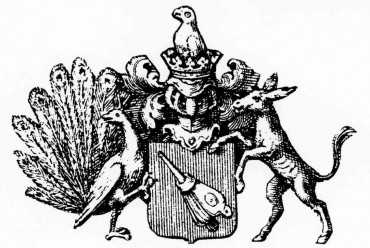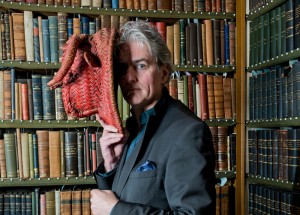The following questions are simply to give readers an idea of who Matthijs van Boxsel is…
How old are you? I was born 25-8-1957
Where are you currently living? Amsterdam (where I was born and raised: The Netherlands are the capital of Amsterdam)
Are you married, do you have any children etc? Living with Liesbeth Wiewel since 1987; no children
How would you describe your occupation? Morosopher, i.e. someone studying stupidity; actually since 1995 I am earning my money by writing and lecturing abour stupidity. The book (volume 1) has been translated in more than 17 languages, including Chinese, Korean, Lithuanian. I am giving courses in stupidity at universities, art-academies and for businesscompagnies, learning them how to fail at the highest possible level, and how to recognise the stupidity in their organisation. Always look at the highest level or in the centre of the system.
Compare it with fish: a lot of fish tend to swim in shoals [to look like one big fish to a predator, or because it is easier to move this way] ; they are genetically programmed to swim after the fish before them; but there is always one fish swimming in front; and indeed scientists have fished them out of the water to discover that they had a genetic deviation. The beauty of it is that as soon the one in front was removed, a spontaneous deviation occurred in one of the other fishes. Think about that, when you have an argument with your boss.
How would you describe yourself?
As one whose stupidity forced him to develop all his qualities to an incredible level. Stupidity has become my most redeeming quality. Indeed I got a cum laude for my thesis on stupidity at university, because, as my professor told me: stupidity is your strongest point.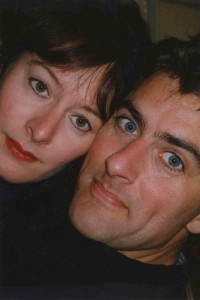
Have you written any other books that people in England may not know about? I have written three short books on stupidity in the 80’s. In 2002 I published Morosophy, a book studying the 100 most stupid Dutch theories of the 20th century. I published a book with anagrammatical-pornographic poetry, called Sexbol (sex in the head (dutch: bol), as well as an anagram of Boxsel). Actually I am finishing The Topography of Stupidity, the fourth of seven books on stupidity. (Following next: The Theology of Stupidity; Stupidity, Sex and Sports; The Aesthetics of Stupidity; The Economy of Stupidity.) And I am the editor of a magazine on ‘Pataphysics.
Aside from lecturing and writing about stupidity, how do you like to spend your time? Reading. (Robert Musil, Borges, Henri Michaux, Chesterton, Themerson.) Participating in pataphysical activities (counting waves; trying to figure out the surface of God; weighing a kiss). Listening to Strawinsky. Being at my home in France, on my bike in the mountains, afterwards diving in the river. Eating fresh figs.
The following are more related to The Encyclopaedia Of Stupidity
How long have you studied stupidity for? Since 1980. After reading the book by Robert Musil, I changed studies: from Dutch Literature, to comparative literature, only to be able to write on the subject. But the blind rage and paralyzing shame when confronted with my own stupidity and that of my friends was already there; it was bad for my stomach, so I had to find a way out. In contrast to most of the books on stupidity, The Encyclopaedia of Stupidity is not a rancourous, gloomy book. It is not an expression of selfpity or selfcomplaint. The book doesn not attack stupidity in an agressive way. It is not another book 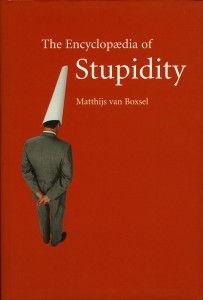 with gaffes, blunders and the like. It is a serious attempt to understand the mechanisms of stupidity. The book is festive from the start. It’s an optimistic book! Stupidity is being accepted as a necessary force. Our culture is the result of a series of succesfull failures. The Encyclopaedia of Stupidity is a modern Praise of Folly.
with gaffes, blunders and the like. It is a serious attempt to understand the mechanisms of stupidity. The book is festive from the start. It’s an optimistic book! Stupidity is being accepted as a necessary force. Our culture is the result of a series of succesfull failures. The Encyclopaedia of Stupidity is a modern Praise of Folly.
How was the encyclopaedia compiled? Actually: it is not a compilation. There are already a lot of good (mainly French and German) books trying to compile the ideas of other people on the subject. Anyone with enough gusto can do that. I am trying something else; I want to build or to recontruct the world of stupidity; its coordinates cross the ones of the world we are living in. In fact it is a universe of its own, with its own flora and fauna, its own language, its own topography, ist own logica and moral. This world is surrounding us, and inside us, but we tend to neglect it, or even to ignore it.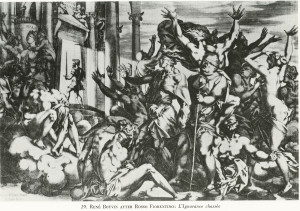
My books are more like the old mediaeval encyclopaedias: fact and fiction together; not an alphabetical but a thematical order. On the one hand an attempt to assemble all that has been written, painted and composed on stupidity through the ages; at the other an attempt to develop an original theory of stupidity, that enables me to see the material in an new light. The book that has been published in English is an overall introduction to the subject.
Looking for a subject for a thesis I had to write at university, I found in 1980 the briljant speech made by the Austrian writer Robert Musil in 1937 On stupidity, a bitter attack on the austrian nazi’s as well as a serious attempt to fathom the logic of stupidity. I was looking for the sources of his book, and I assembled hundres of serious, often unintentional witty books on stupidity by theologians , philosophers, sociologists. Stupidity was defined as a quality of its own, not a lack of intelligence. This was confirmed by allegorical prints from the renaissance, wherein Stupidity had a place of her own. I tried to find a system in all the definitions of stupidity, and from thereon I developped my theory.
But the book is not a dry academic treatise. The humour of the enterprise consists in the stylish approach of an apparent trivial subject as stupidity. I analyse in a festive way the stupidity that lies at the heart of our civilisation. Using cartoons, triumphal arches, gardenarchitecture, baroque ceilings, the royal family, poor excuses and science-fiction. Stupidity manifests itself in every walk of life, in each person, at all times. A study of stupidity therefore automatically assumes encyclopaedic dimensions.
Can you make a short summary of the book… Stupidity is unwitting self-destruction. Stupidity is the ability to act against one’s best interests, with death as the extreme consequence. This talent is typical human. Unlike the animals that have an instinct for self-preservation, human beings are prepared to risk themselves and their kind for some crazy idea about race, nation or belief. So as not to be destroyed by their stupidity, humans were forced to develop their intelligence. All the strategies for the control of stupidity are what combine to form our civilisation.
But intelligence does nog offer any guarantee of self-preservation. In fact, intelligence can even enhance stupidity, witness for example technological advances:
* Energy-saving lightbulbs are used mainly for decorative illumination of gardens.
* Motorists with airbags and seatbelts drive on average 20 percent faster.
* Air-conditioning affects the ozone layer, contributes to the greenhouse effect. The cooling of offices leads to the heating of the atmosphere, leads to more airco
* The consumption of paper has increased since the introduction of computers.
* The development of cushioned jogging shoes intended to protect the knees has increased wear and tear on the hips.
Life-threatening stupidity cannot be eradicated without eradicating mankind, which would be tantamount to stupidity squared. The only solution is to devise lasting new stratagems for thwarting stupidity. Seen in this light,stupidity is the engine that drives our civilization. Blunders stimulate progress, failure is the basis for success.
Do any particular interesting experiences stand out from the time you were researching stupidity? I reached my own point of utter stupidity in 1992. After studying the subject for years I thought I had found the key to the world-riddle so to say. I mean: I really thought I had found the answer; I had noted down my theory on a sheet of paper, and it was beautiful, I could explain anything, which I did in fact in theaters, with much response. Then I started to work out my theory systematically, and the next two years were the most productive ones in my life. Then I returned to the initial page with the theory, and… I failed to grasp the essence. The same intelligence that had got me so far, turned against me, and I dived in a deep depression. It took me a year and a lot of sports (cycling every day for hours) to regain faith in the project. Then came a Dutch publisher, who took all the material with him, and since then the books are appearing. I never recovered the initial, megalomaniac idea, but the remains that are being published seduce me, off and on, to make an new attempt. I should know better; and indeed I do, but still I’m trying. That’s another definition of studipity: knowing better, but doing it anyway.
 So: my greatest stupidity: I thought I found the solution to all problems and then I failed to understand my own notes: with stress as the result! Stress is thé modern form of selfdestructive stupidty! I became the victim of my own intelligence. Since then I developped my muscles as well. Since then I have tried to fail at the highest possible level; and that turned out to be the moral of the book.
So: my greatest stupidity: I thought I found the solution to all problems and then I failed to understand my own notes: with stress as the result! Stress is thé modern form of selfdestructive stupidty! I became the victim of my own intelligence. Since then I developped my muscles as well. Since then I have tried to fail at the highest possible level; and that turned out to be the moral of the book.
What is the best example of human stupidity that you have come across? That one is yet to come, I am afraid.
 Is it true that in Holland, when the book was first released, fans started clubs in which they attempted to out do each other with examples of their own stupidity?
Indeed, their were two clubs, one in Friesland and one in Amsterdam. Actually they are fundraising to establish an Academy of Stupidity; the Dutch Ambassador in Madrid, who attended a lecture I gave overthere, said he would enjoy to give masterclasses about all te stupidities in the diplomatic world. One big problem seems to be that I have written things on the Dutch Royal family that hinders some people to contribute.
Is it true that in Holland, when the book was first released, fans started clubs in which they attempted to out do each other with examples of their own stupidity?
Indeed, their were two clubs, one in Friesland and one in Amsterdam. Actually they are fundraising to establish an Academy of Stupidity; the Dutch Ambassador in Madrid, who attended a lecture I gave overthere, said he would enjoy to give masterclasses about all te stupidities in the diplomatic world. One big problem seems to be that I have written things on the Dutch Royal family that hinders some people to contribute.
The frogs, enjoying the freedom of their marshland, petitioned Jupiter to let them have a king who would put an end to the lax morals that prevailed there. With a smile, the father of the gods flung a log into the morass. When they had recovered from the shock, the frogs approached their king, and on examining him took to mocking him. The frogs then asked Jupiter for a proper king, whereupon he threw a watersnake into the marsh, which swallowed them all up.
Here we have the two extremes of our society: democracy can degenerate into anarchy while monarchy can end in dictatorship. The moral of Aesop’s fable: democracy exists by the grace of a king, provided that he is no smarter than a log.
And that you also had some copies bound in ass’s hide to emphasize the stupidity of the whole project?
That’s right: but it was a great problem to find the ass’s hide. Even when Spain and Portugal joined the EU, in 1987?, the European Leather Company could not provide it; they did offer elephant’s hide and even mouse-hide. At the end we opted for hairy grey imitiation leather.
How does it feel to have spent 20 years researching a subject that even you think is stupid? It fills me with great joy, gratitude and amazement. What if I would have been researching, say, intelligence, vegetables, or God, for 20 years; that would have been suffocating, boring. But stupidity always surprises you, and forces you to surpass yourself. I’m enjoying my work everyday: I gain a lot of weird knowledge, and it is a great pleasure gaining it. I am blessed by stupidity.
What do you feel ordinary people can learn from the book? That everyone tends to underestimate his/her own stupidity. That being ordinary is the result of hard labour, i.e. a succesfull attempt to domesticize your idiocy. Nobody is smart enough to grasp his own stupidity. But that is no reason to despair. Culture is the result of a series of failed attempts to come to grips with stupidity. In our struggle with stupidity, we can reach the highest peaks of culture. The book is aiming at a reconciliation with our stupidity. Stupidity is a taboo.
There is good reason why we laugh at the stupidity of others and try with all our might to hide our own. But how can we possibly live with our stupidity? How can we stop being victims of our own folly? The struggle against stupidity is pointless. Intelligence attacking stupidity becomes caught in its own web of thought patterns. Prevention is vain. Anyone acting stupidly notices it, by definition, too late. A stupid act cannot be headed off. The most stupid solution is to be struck dumb for fear of doing something stupid!
Since stupidity is unavoidable, make your stupidity a personal, unique stupidity. If you fail, fail at the highest possible level. If you fall, fall with elegance and sing while you do. Be as colourfully and versatilely stupid as you can. That way you avoid banality and stiffness,two dangerous sides of stupidity. Do like me, turn stupidity into your strongest quality.
The definition of stupidity in the book (i.e. that it is not the opposite of intelligence) is not how many people understand it. Most serious books on stupidity define it as a quality on its own, not as a lack. Even to me that came as a surpise; but after a while I was convinced. It turned out to be a more fruitfull hypothesis than the one that defined stupidity as a lack of intelligence or even of feeling (humour, taste)!
Have you ever offended anyone by suggesting they were stupid? On the contrary; once I start to explain my theory, there is a sigh of great relief that stupidity is being defined as a typical human quality that has nothing to do with intelligence; indeed people like to hear that they have stupidity in common, but that they differ in their attempts to cope with their own stupidity; everyone is original in the chosen methods to reconsile themselves with their power to selfdestruction. By the way: I never juse the word ‘stupid’ as a term of abuse anymore. I prefer other ones, since I started studying the subject.
Well, there has been one moment at school, when I was say 14 years old: a classmate said something stupid about democracy, and I turned around and said to her: Greetje, you are so terribly stupid. The next moment everyone was very quiet. That was propably the first moment I realised that the use of the word could be a serious weapon. Calling someone stupid, is ending the conversation, it is the ultimate discrimination. Indeed it is one of the most terrible things you can say. The next day, after I had thought about the amazing effect of my words, I apologized in front of the class, on my own initiative. Stupidity is a taboo.
For people who may not have read the book, can you briefly explain Morosophy?
Morosophers are people with an evidently absurd theory about existence. Unlike the mediocre theories of New Age gurus, astrologers, ufologists and so on, morosophical studies are so queer that they cannot help acquiring a literary quality. The most important criterion of morosophy is originality: the less predecessors and followers, the greater the chance of being included in my book. The word morosophy [fool-osophy] means: foolish wisdom or wise foolishness.
Morosophs operate at the crossroads of science, religion, art and madness. Is the earth flat? Was Dutch spoken in paradise? Are atoms spaceships? Is Delft Delphi? Can the floor plan of the pyramid of Cheops be found in the street plan of ‘s-Hertogenbosch? Is the world entering the Lilac phase? Did abstract thought commence when the clitoris evolved from the inside to the outside?
I started collecting Dutch morosophers in 1992. The immediate impulse was the publication of the book Where Troy once stood. In this study by Iman Wilkens, the author concludes on the basis of studies of climate, fauna, flora, culture and topography that part of the action of Homer’s Iliad and Odyssey is set in the Netherlands. Delphi is Delft, Drente is Thrace, Flakkee was inhabited by Phylacians, and Zierikzee by the enchantress Circe. Wilkens situates the entrance to the underworld in Zeeland (the truth and wisdom of this finding can be asserted by anyone who has ever visited Zeeland.) As a rule, a morosopher is somebody whose world has been destroyed by a shocking event. With the help of his theory he managed to reconstruct a new universe from the wreckage, for the sake not of a higher truth, but of an endurable existence. Morosophers are not dreamers; they are healthy thanks to a phantasm within which they are lord and master. To the extent that they bother to follow scientific insights, this is to stimulate their fantasy. Unimpeded by any scientific knowledge, their imagination enables them to force their way through to the world of science and technology. From there they design a parallel universe in which the limits of the possible are sought out and transgressed; they enter the area of the wondrous and the monstrous, and discover a world that, like the world of the comic and the fairy-tale, is out of the reach of the physicists. Morosophy is science in wonderland.
Is the human race doomed due to its own stupidity, or will learning from stupidity in hindsight help it to prosper even more? Stupidity has led human kind to the highest peaks of intelligence: but then again: without intelligence, our stupidity would not have had such disastrous results. Humans are dangerous precisely because we are intelligent, because we usually succeed in accomplishing what we set out to do. And the more intelligent we are, the more disastrous are the effects of our stupidity. The final diaster will be the supreme fruit of the combination of intelligence and stupidity.
If no man is intelligent enough to understand his own stupidity, then is your book incomplete? Indeed, I have chosen the most perfect subject to write on.
What would you say to critics who have the opinion that your book is personal interpretations of events and histories, and not actually a study with cognitive experiments etc? (This is an opinion I saw on the Internet!) I have never pretended to write a scientific book, on the contrary: as I have written in my book, I am not after a logical or a philosophical Truth, I am looking for a retorical, paralogical truth, in the tradition of Swift, Queneau, Stefan Themerson and other pataphysicians. (One of my favorite books is On the shoulders of Giants by Robert Merton.) I try to develop a theory that (I hope) can be enjoyed for its literary qualities. I am looking for a surprising view on subjects we tend to take for selfevident. It is a one-man-theory, a very personal way to look at the world, my personal attempt to cope with stupidity. Indeed: morosophy. By the way: a scientific essay is a paradox: the essay is a speculative genre which starts where journalism and science necessarily end.
Everyone has to cope with the idiocy of existence. Most people look for refuge in religion, sports, talking to the cat. In the tradition of the morosophers, I’m looking for a highly personal, possibly inimitable way to cope with stupidity. Morosophers live a more or less normal live thanks to a phantasm in which they have domesticized their idiocy. You cannot escape stupidity, but you can try to make your stupidity an unique stupidity. The book is itself a product of a series of failed attempts to understand stupidity. To fail in the most colourfull way, the essays are analytical, ironic and aggressive in turn. The book is meant for those who can afford themselves the luxury of thinking. For people who enjoy the perverse pleasure that lies hidden in useless erudition. By the way: the outlines of The Encyclopaedia of Stupidity are so vast, that their is ample room for my critics.
Is stupidity profitable? Again: I earn my money with it. And studying stupidity leads me to knowledge (and pleasure) I would otherwise never have gathered.
If the human race were not so stupid, how would you earn a living? Writing books on pataphysical subjects. Playing the bluegrass banjo; drawing and painting. Giving lectures on eristics, that is the art of being in the right, even when one is in the wrong. But what would the world look like without stupidity? Our most briljant inspirations would be realised without effort, everything would be clear. The reasonable would be selfevident. It would be boring as paradise. We would be pining for the Fall.
Please add anything else you feel needs to be said. Everyone is entrapped in his/her own intelligence. You cannot step outside your castle of knowledge to conclude that it is hanging in mid-air. It is only through jokes, paradoxes, absurdities, nonsense that you reach the limits of thinking, and get a glimpse of the monster that is lurking – not on the outside, but in the heart of the matter.
Contact: batafysica@xs4all.nl
